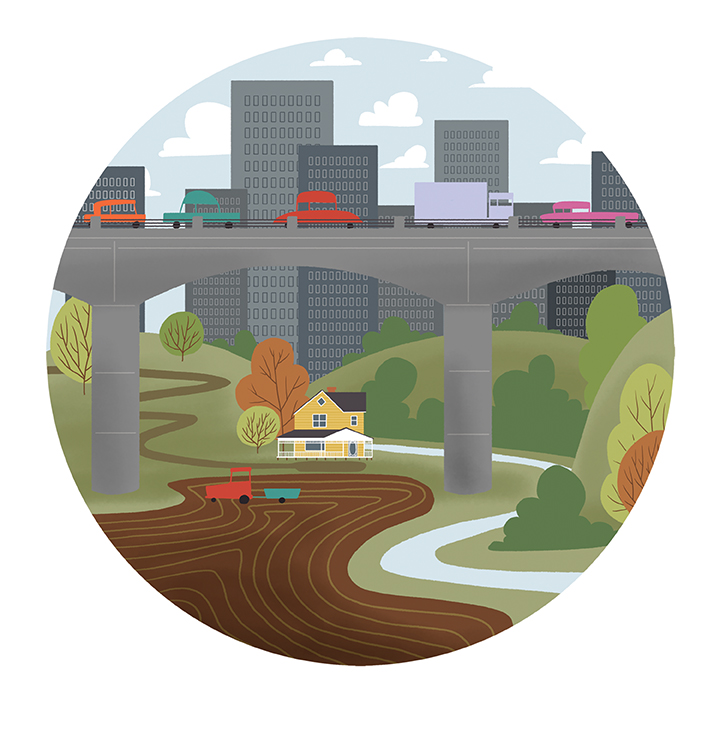“I hope that the bridge doesn’t go through their land,” says Gibbons, “but it’s out of my hands.” The consolation, he adds, is that, even if likely, it isn’t imminent. “As far as I’m concerned, they’ve got the right to keep going for years and years.”
The timing of this issue bears irony – the couple’s commitment to farming is relatively recent. Growing up, “I swore I’d never be a farmer,” says Janelle. “I couldn’t wait to get out of here as a teenager.” She did after marrying Aaron when she was 22 years old, he about 25. They lived in town, where she was an occupational health assistant and Aaron worked as a steel fabricator. When the opportunity came to take over the land in 2006, Janelle was surprised by her husband’s excitement. Aaron quickly fell in love with farming. “It didn’t take me very long to realize how unhappy I was before,” he says. “I don’t want to do anything else now.”
Today, he and Janelle manage a seasonal staff of about 12 people to grow bedding plants and nearly two dozen varieties of vegetables – everything from purple potatoes, to pumpkins, to that sweet corn that rivals Taber’s, thanks to the extra weeks Riverbend Gardens gets in its season. They’re within easy access of the eight farmers’ markets they serve and have recently started supplying customers with weekly boxes of fresh produce. It all adds up to an income and standard of living on par with the Herberts’ friends in the city.
It also adds up to an opportunity some say Edmonton should strive to preserve. When Michael Walters, a former member of the Greater Edmonton Alliance (GEA) and Ward 10 candidate in the upcoming municipal election, helped lead the creation of an urban agriculture strategy, “The original question we asked was, ‘Where is our food going to come from in 25 years?’
“When you have an asset like those food producers with that kind of land and soil,” Walters says, “It gives you opportunities as a city to think bigger.”
